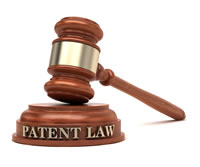Courthouse Steps Decision: TC Heartland LLC v. Kraft Foods Group Brands LLC - Podcast
Intellectual Property Practice Group Podcast

On May 22, 2017, the Supreme Court handed down its unanimous opinion in the closely-watched TC Heartland LLC v. Kraft Foods Group Brands LLC case. The patent venue statute provides that a domestic corporation may be sued for patent infringement anywhere the defendant “resides,” and the question before the Court was whether that rule incorporates the broader definition of corporate residence found in the general venue statute. The district court and the Court of Appeals for the Federal Circuit both held that it did, thus giving patent owners more choices of where they could sue for infringement. However, the Supreme Court reversed, holding that a corporate defendant only “resides” in its state of incorporation.
While the Supreme Court rested its opinion solely on the statutory language and its own precedent interpreting it, many of the arguments raised in the amicus brief supporting both sides focused on the policy implications. In particular, the briefs argued that the Court should consider the effect its decision would have on certain patent assertion entities (PAEs) or “patent trolls”—non-practicing patent owners who litigate their patents, oftentimes in the Eastern District of Texas. Whether such arguments persuaded the Court is unclear, though it is clear that the Court’s narrow rule for where patent owners may sue will change the litigation landscape for practicing and non-practicing entities alike.
Featuring:
- Mr. William J. Brown, Jr., Managing Partner, Brown Wegner LLP
- Prof. J. Devlin Hartline, Assistant Director, Center for the Protection of Intellectual Property (CPIP) and Adjunct Professor, Antonin Scalia Law School, George Mason University






